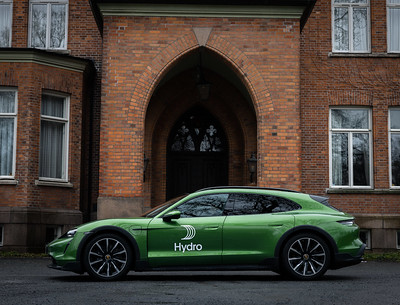
Porsche and Hydro unite to further decarbonize the supply chain of sports cars
Hydro will deliver Porsche and several of Porsche’s component suppliers with its low-carbon aluminium with one of the lowest CO2 footprints on the market today, covering emissions from the mine to the metal. By 2025, Hydro will enable Porsche to reduce the footprint of the aluminium in future vehicle projects to around 3.5 kilograms of CO2 per kilogram aluminium used. This is approximately 60 percent lower than the average primary aluminium consumed in Europe currently.
Due to its superior properties in pliability, light weight and strength, the ratio of aluminium in Porsche cars has been increasing steadily. Aluminium is one of the key elements in the transformation of an electrical vehicle into a sports car. Already today, aluminium constitutes around 30 percent of the total weight of the Porsche Taycan, the brand’s first fully electric sports car. As part of the ambitious decarbonization plans of both companies, Hydro aims to supply Porsche and Porsche’s component suppliers with aluminium targeting CO2 neutrality in 2030. Hydro will do this by increasing the use of renewable energy in aluminium production, and recycling post-consumer scrap to increase circularity and reduce the footprint of the aluminium produced.
Another important part of the agreement between the two companies will be the proof of concept for building a sustainable battery value chain in Europe. Porsche and Hydro will cooperate in the development of a roadmap to recycle battery materials in Europe. One of the key elements of this project will be to investigate how to build efficient closed loop solutions for Porsche’s EV batteries.
Information Source: Read More “
Energy Monitors , Electric Power , Natural Gas , Oil , Climate , Renewable , Wind , Transition , LPG , Solar , Electric , Biomass , Sustainability , Oil Price , Electric Vehicles,


